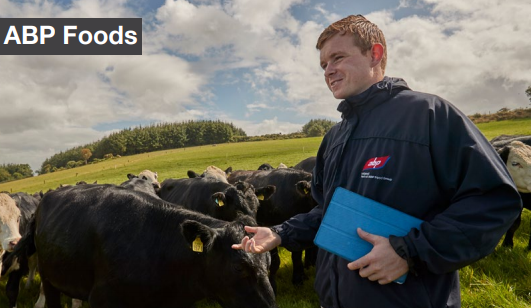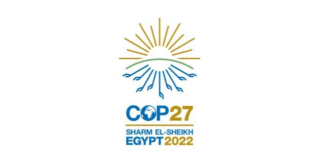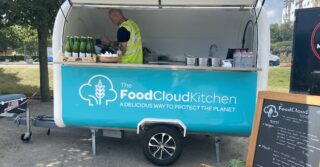On the importance of stakeholder engagement with ABP
The agribusiness/food & drink sector has a difficult challenge ahead of them. It has a complex supply chain, with many stakeholders. The following case study focuses on the importance of stakeholder engagement for ABP Foods on the journey to their science-based targets (SBTs) set and beyond.
ABP Food Group is one of Europe’s leading agribusiness companies employing more than 11,000 people in nine countries. ABP is a fully integrated agribusiness. As a very large player in the meat production sector, ABP Foods has had a significant focus on sustainability for many years. ABP Foods set group sustainability targets back in 2008. Like many others, these initial targets were internally focused. These targets drove change across the
whole business and thus sustainability became a central narrative for the company. Using efficiency and cost (savings) as a lever, ABP very quickly engaged all site general managers and operations teams in the process and thus managed to scale improvements across sites. It is important to note that financial benefits often come with environmental benefits making the attainment of these initial targets relatively straight-forward across the group.
However due to their scale, and prominent position within the supply chain, ABP Foods wanted to increase
their sustainability ambition and they decided to set SBTs. The intention was to bring more rigour and transparency to the definition and execution of their decarbonisation approach. However, SBTs were quite new at this time and the level of knowledge or expertise within the sector was relatively low. ABP Foods were determined to take a leadership role within the sector and get ahead of the inevitable consumer and regulatory focus on carbon reduction. They started this journey by engaging external parties, such as Carbon Trust, to help them navigate through the science-based target (SBT) process. Many major retailer partners followed in setting SBTs and in 2019, ABP Foods had their scope 1, 2 & 3 SBTs formally approved. When determining the preferred pathway, it was important to consider technical feasibility and maturity of industry standards, which ultimately defined the level of ambition. A 2°C pathway was chosen for scope 3 over 1.5°C due to the complexity of where the scope 3 emissions in this sector are produced, and the technological and societal challenges associated with changing farm practices. This is consistent with Irish and European pathways where agriculture pathways typically run beyond 2050. An investigation was conducted into what would be required to move closer to the 1.5°C target. They found that there were two challenges with the Science Based Targets initiative (SBTi) methodology for this sector which made this pathway unattainable: (1) it does not account for sequestration and (2) it does not accept biogenic methane as being a short-lived greenhouse gas. If either of these methodological rules change, ABP Foods may revisit their ambition.
Circular approach.
While ABP Foods main business division is beef, it has three other divisions which help lay the base for a circular approach: pet foods, proteins and renewables. This unique structure ensures that there is no waste from the processing of meat, with all by-products fully utilised by the supporting divisions. This is called 100% by-product recovery. The socalled “waste” material is converted into biofuels and other products of value. Tallow and “waste” oils are converted into biodiesel by the renewables division, while waste meat products are used in the pet food division.
Scope 3 requires a different approach: Engaging stakeholders on the journey to science-based targets
Stakeholder buy-in for scope 1 and 2 was relatively straightforward as it was an extension of existing internal business practices and the operating model. The systems were in place, support was received from the executive board, and they all went on the journey from the exploration phase to the final application. A comprehensive, externally focused, data gathering exercise with external parties was conducted. The initial assessment revealed that scope 1 and 2 emissions represented only 2% of the full carbon footprint. The majority of the scope 3 emissions related to purchased goods and services (cattle, sheep, meat products). In order to tackle these emissions, an entirely new set of external stakeholders had to be engaged. The agriculture team was involved from the start. It also meant more engagement with a wider array of authorities/industry bodies (e.g. Teagasc, ICBF, department officials). Organisational changes were also required within the company to send the right message about the importance of this topic to ABP Foods, including bolstering agricultural resources, with specific focus on sustainability. They appointed a Group Sustainability Director, who also has responsibilities across compliance, food safety and agricultural R&D / innovation. This sends the signal that sustainability is core to the business and not simply a CSR type activity.
A longer term planning horizon is critical to net-zero strategy definition. It is important to look forward and scenario plan based on existing, but more importantly, projected challenges such as emerging consumer trends. ABP Foods is now seeing the benefits of the early adoption of sustainability targets and the resulting change in farm practices. An example of this is genetic, feed and processing changes which have resulted in much more efficient animals which are yielding better financial results for the farmer and lower carbon emissions per kg of meat produced. In order to continue on this journey, they intend to continue to prioritise R&D, applied through demonstration farms and a collaborative approach of engagement with external expertise, such as universities and key national bodies and institutions (e.g. ICBF and Teagasc). Independent industry authorities are vital to help communicate, articulate, enable, support and fund activities across the whole industry. For companies in this sector, it is important to consider the pace of change set by policy makers. Setting an appropriate path for Ireland will require a collective effort by all stakeholders across the livestock sector, meat processing industry, policy makers, national research institutions, etc. ABP is highly active in playing a leading role in developing and delivering against this requirement.
Download a copy of the full Low Carbon Pledge report.
Find out more about the Low Carbon Pledge.







